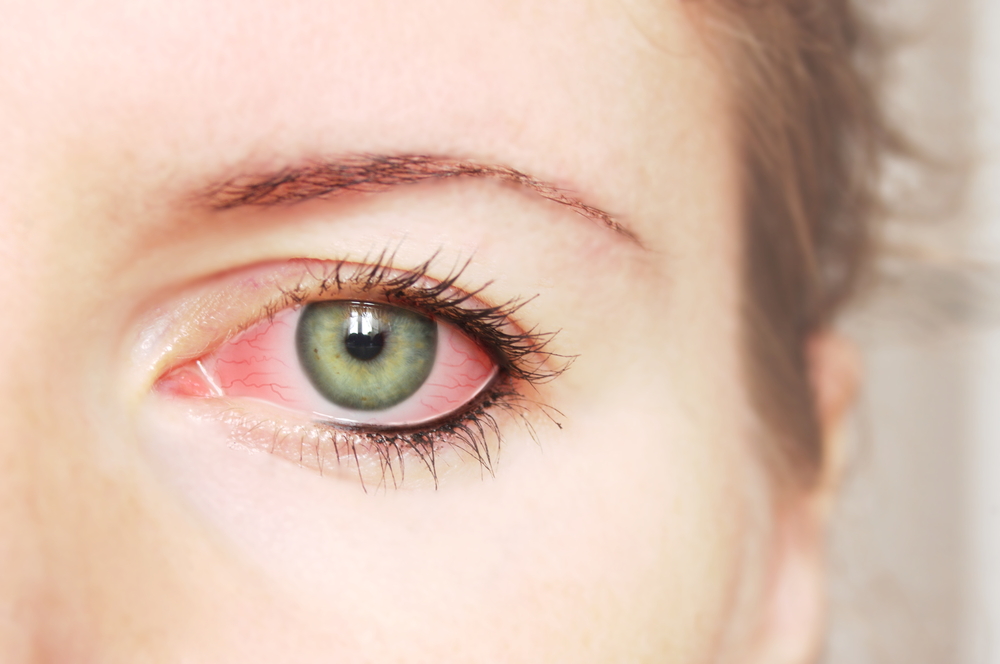An allergy is a common autoimmune condition; symptoms range from annoying to life-threatening, but using allergy medication and effective avoidance strategies can help you eliminate them. This article describes the best allergy medicines to treat common allergy symptoms.
Most allergic conditions such as asthma, allergic rhinitis (hay fever characterized by sneezing, runny nose congestion, itchy eyes, and sometimes headaches), atopic dermatitis (eczema and skin reactions), and allergic conjunctivitis (red eye) are caused by exposure to allergens commonly present in our environment.
Repeated exposure to allergens contributes to development of a wide range of symptoms accompanied by increased sensitivity. Avoiding allergens is the best-tested way to prevent the onset and development of allergic conditions, although it may be impossible in some cases. Because exposure to allergens triggers immunological responses, which may ultimately give rise to allergic symptoms, allergy medication inhibiting any point of the process can make the resultant symptoms less effective. Many drugs, such as glucocorticoids, antihistamines, bronchodilators, and antiallergic medications, are clinically approved to treat allergic conditions and reduce symptoms.
Glucocorticoids
-
- Glucocorticoids exhibit potent antiallergic, anti-inflammatory, and immunosuppressive actions contributing to allergy treatments. These are considered the most effective medications for treating allergic diseases, although they sometimes cause severe side effects. Therefore, it is best to use these drugs under the guidance of a doctor. Glucocorticoids have been the most important class of medications for treating allergic skin conditions, especially atopic dermatitis, which causes the skin to dry, itch, and inflame. These drugs are usually applied topically to treat skin allergies as creams and gels. Topical glucocorticoids relieve symptoms of topic dermatitis and other allergic skin reactions. Some low-potency ointments are available without a prescription but speak to your dermatologist before using these allergy medicines for more than a few weeks.
-
- On the other hand, bronchial asthma has recently been identified as chronic airway inflammation because of the effectiveness of inhaled drug beclomethasone dipropionate. Based on this concept, Glucocorticoids gain more importance in treating bronchial asthma than ever before. Now inhaled glucocorticoids are used worldwide to treat and prevent airway inflammation in mild to moderate asthmatic patients. However, an oral form of glucocorticoids is essential for controlling severe conditions. Recently developed compounds such as budesonide, beclomethasone, Triamcinolone, and fluticasone propionate are beneficial. These drugs come as skin creams, eye drops, injections, inhalers, and nasal sprays, and some brand options include Seroflo Inhaler (Fluticasone and salmeterol), Nasacort Aqua nasal (Triamcinolone), Kenocort injection (Triamcinolone) and Flixonase nasal spray (fluticasone). Although glucocorticoids are extremely productive for treating allergic conditions, they must be used carefully to prevent side effects.
Antihistamines
Antihistamines are important in allergy-related symptoms and are widely used for allergic diseases, especially skin diseases. These allergy drugs are very effective at relieving the symptoms of urticaria, rhinitis, and conjunctivitis. Antihistamines are known to block histamine, a symptom-causing chemical your immune system produces during an allergic reaction. Recently, a lot of new antihistamines with higher selectivity have been developed. In these drugs, the depressive effects on the central nervous system are also reduced.
Some of the newly discovered antihistamines are used for treating bronchial asthma and are classified as antiallergic drugs that possess additional properties beneficial for treating allergic conditions. Antihistamine comes as creams, tablets, nasal sprays, and eye drops. Allergy eye drops can relieve red and itchy eyes, while the nasal spray can help eliminate seasonal and year around allergies. New antihistamines, except cetirizine, have fewer side effects and are less likely to cause drowsiness. These medications come as tablets; some brand name options include Allegra and Alerid. Antihistamine nasal sprays help relieve itchy or runny nose, sneezing, and sinus congestion. Prescription antihistamine nasal sprays include Azelastine hydrochloride and olopatadine.
Also Read – Tips To Get Control of Your Allergies
Bronchodilators
Although glucocorticoids effectively control inflammation in the lungs in patients with bronchial asthma. To relieve asthmatic attacks, bronchodilators such as theophylline beta-adrenoreceptor agonists and anticholinergic drugs are employed. Prescription bronchodilators include Formoterol fumarate, theophylline, and ipratropium bromide. Some widely available brand options for these drugs include the Foracort inhaler, rotacaps, and Duolin inhaler/respules/rotacaps. You can buy these drugs from a reliable online pharmacy at affordable rates.
Conclusion
Allergic disorders are caused in individuals with some genetic factors under the influence of genetic factors. The recent increase in allergic patients has demonstrated that many individuals possess genetic factors and that our environment has numerous allergens and adjuvants that facilitate the onset of land development of allergies. The number of patients suffering from allergic conditions has increased in recent years. To treat allergic diseases, we need effective allergy drugs. The drugs mentioned above may also work in your case when used under the supervision of a doctor.




